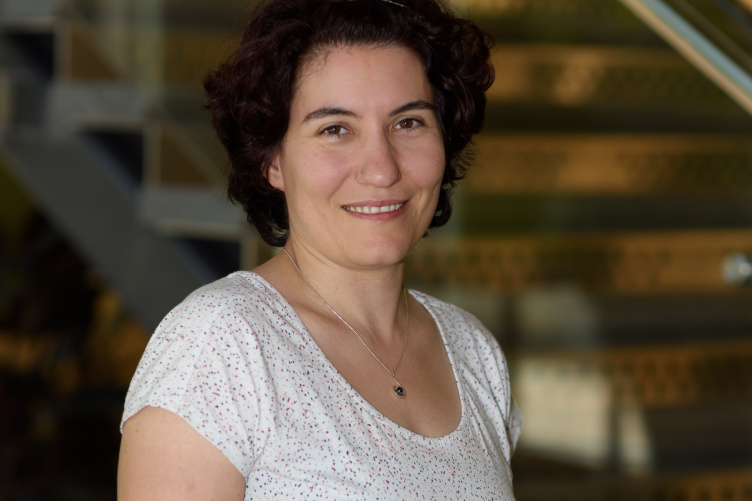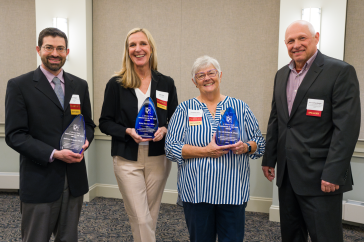
Millions of people utilize search engines every day to get answers to an array of questions, but the results don’t always reflect the comprehensive nature of the search inquiry.
To help address that shortcoming, assistant professor Laura Dietz recently received a CAREER Award from the National Science Foundation. The $500,000, five-year award for Utilizing Fine-Grained Knowledge Annotations in Text Understanding and Retrieval will support graduate students working on the project.
“I want to retire search engines as we know them and have something better,” quips Dietz, who joined UNH’s department of computer science three years ago. “When searching on the internet for complex answers to a particular topic, the search results rarely give the breadth of information to best answer the underlying question.”
In simple terms, Dietz is looking to take the strengths of two of the most popular websites — Google and Wikipedia — and combine them to create a platform that would provide comprehensive and organized answers to complex questions. Dietz will use the dataset and quality measure to develop and test drive new solutions.
Currently, search engines such as Google populate links to websites by relying heavily on keywords but don’t always provide context. Meanwhile, Wikipedia organizes information in a way that provides context but cannot address all possible topics because it relies on much slower human editors to organize the information. Dietz hopes to train computers to give users access to information at a glance. Essentially, the software would produce a Wikipedia-like page for every single query it gets.
The findings of her research could impact anyone searching on the internet, including professional fact-checkers.
“We want to provide information at a level of complexity to help people form opinions,” says Dietz. “People are often seeing the same websites, and there is a lot of information that search engines are not displaying or is buried in the results.”
Currently, computers can read and respond to a query fast, but they may not truly understand the context of the query. The developed software would train computers to better understand queries and learn what is on-topic and what is off-topic in order to prevent users having to go through a potential long list of links to find what they are looking for.
The research is a continuing effort for Dietz, who has been coordinating an international shared task at the Text Retrieval Conference, TREC. A shared task is similar to a competition where the best research groups submit their best solutions, and as a community, they analyze what works best and why.
“I am excited, as it is an honor to receive a CAREER Award. It is vindication that I am working on good things and have good ideas,” says Dietz. “It is a nice thing to hear about your work.”
-
Written By:
Brooks Payette | College of Engineering and Physical Sciences
















































